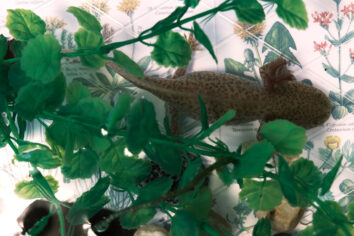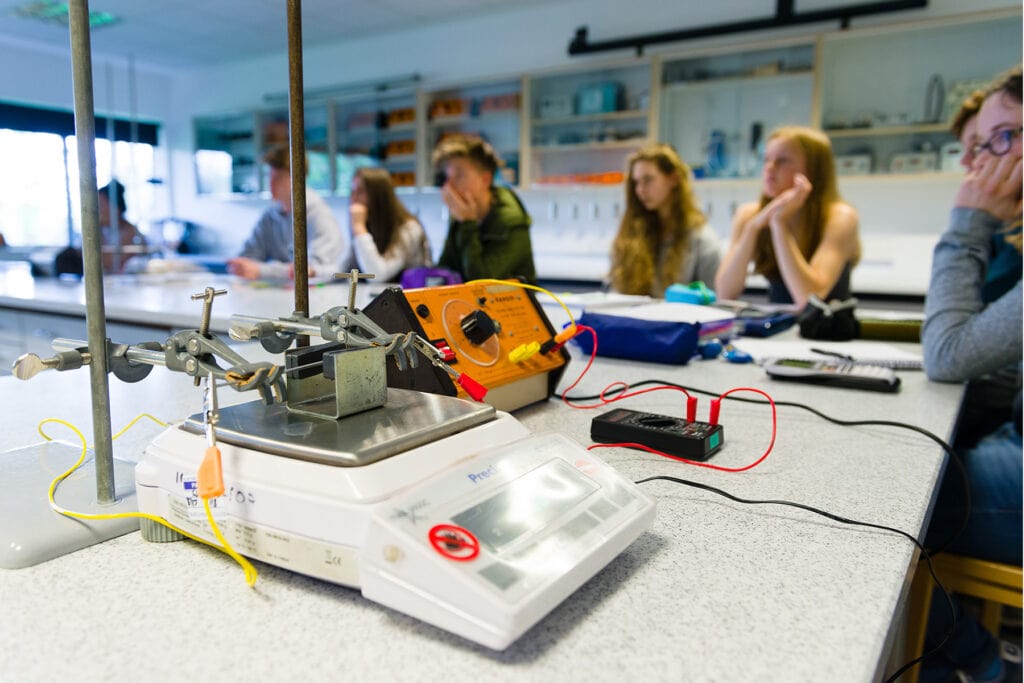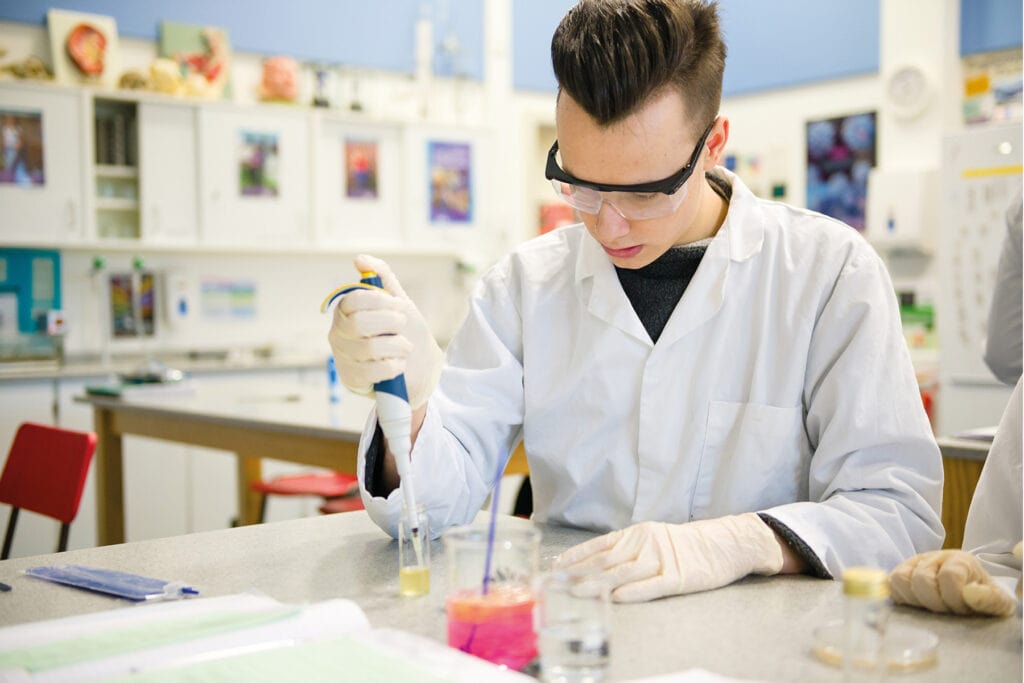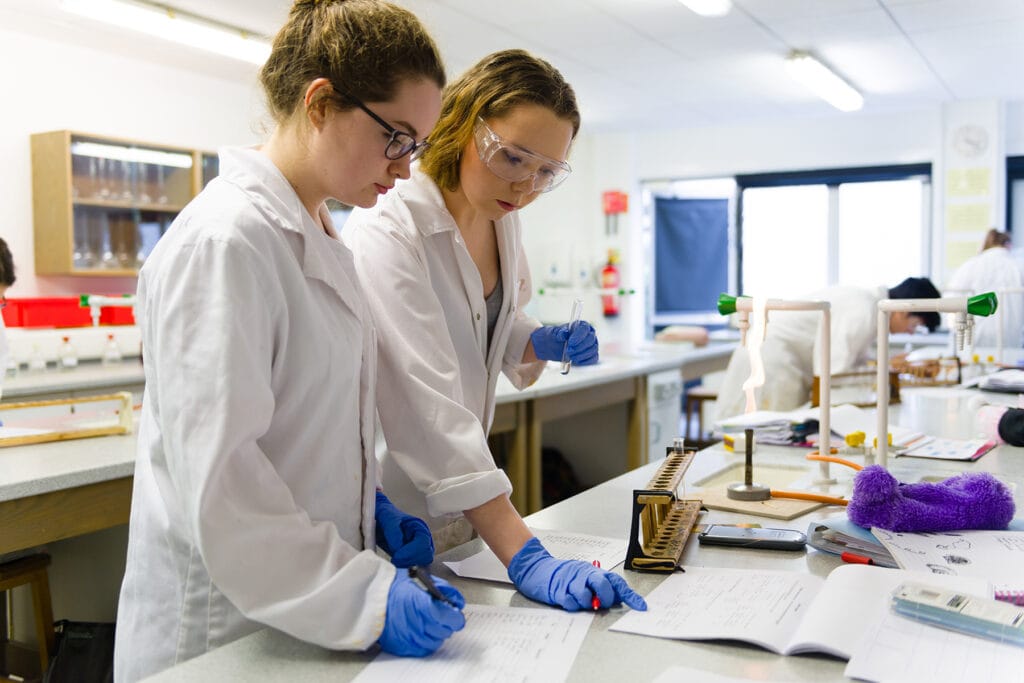New students starting in September: You can find more information about Induction days and submitting your GCSE results in our Start of Year Guide.
WHY CHOOSE THIS COURSE?
Studying this course can lead to university courses in various environmental science subjects. Environmental science careers form a major section of the government’s UK shortage occupation list meaning that you will have great career prospects ahead of you. You will need a strong science background in order to access most progression options, and so should consider linking this with other sciences such as Biology. However, this can be a great subject to broaden out a more humanities or arts-based programme. This subject can give the opportunity for practical learning in many of the topics covered, and field work, trips and visits will form a significant part of your study programme.
Apply for this course
Start date: 08/09/2025
TOP COURSE HIGHLIGHTS
Excellent lecturer support
Small class sizes
Exceptional facilities
Enrichment opportunities

Friendly and supportive specialist staff
The lecturers are friendly, supportive, hardworking and committed to helping you succeed. Reaching your potential in this subject relies heavily on your attendance, punctuality and commitment to learning and revision, and acting on advice given by your lecturer.

Clear Progression
Our course delivery is highly structured to ensure you have a holistic understanding of the course and its assessment from the start of your time with us. You will have a clear understanding of your progress in the subject, and regular assessments and detailed lecturer feedback to support you to further improve.

Practical experience
Students have the opportunity to gain practical experience in ecological field techniques whilst investigating a range of local habitats.
WHAT WILL I LEARN?
In the first year of your studies:
The Living Environment: Conditions for life on Earth and how the presence of life on Earth bought about change. Methods of conservation, planning and monitoring as well as habitat conservation including the study of vulnerable biomes. How humans influence biodiversity in terms of destructive effects including the methods of protecting biodiversity.
The Physical Environment: You will study the main components that make up the physical world and provide the conditions that enable life to survive here. The topics include: the atmosphere, hydrosphere, soils, biogeochemical cycles and lithosphere.
Scientific Methodologies: Investigative methods in environmental science, how to sample habitats, using and recording quantitative and comparative data, measuring abiotic and biotic factors in various ecosystems. Field work studies of population density, species frequency, biodiversity and soil analysis. Understanding of new techniques such as radio tracking, tagging and ringing of mobile populations. Use of satellite data and DNA as well as monitoring of indirect evidence such as owl pellets, nests, droppings tracks and trails.
The Physical Environment: Here you will study the atmosphere, how it works and how we monitor it. Including its dynamic nature, carbon footprints and ozone depletion. Water resources, how humans influence the water cycle and how we maintain sustainable supplies. Mineral resources, how they form, how we find them, and the issues associated with their extraction as well as how to protect the environment from the impact of extraction. The carbon, phosphorous and nitrogen cycles, our influence on them and how we can exploit them sustainably. Soils, how they form, how we make them vulnerable and how we can protect them.
In your second year of study: We cover a range of real-world examples that enable us to apply what we learned in the first year to understand the impacts they have on the environment and what we can do to mitigate this. The examples include: energy resources, pollution, agriculture, fishing and forestry.
In the second year of your studies:
Energy resources: The importance of energy supply in the development of society, the impact of their features in their use. We study the sustainability of our correct resources and the strategies to secure our future, using renewable and non-renewable resources. We will also look at new ways to conserve energy in the domestic and industrial setting.
Pollution: The properties of pollutants and how environmental factors affect the severity of pollution and the strategies to control pollutants. We will study pollutants for example acid rain, NOx, hydrocarbons, pesticides, nutrients and heavy metals, noise and radiation etc.
Sustainability: This section looks at the dynamic nature of our Earth and how positive and negative feedback mechanisms effect the rate of change in our environment. Here we will look at Energy, material cycles and the circular economy.
Biological Resources: You will study different types of Agriculture and Aquatic food production systems, investigating ways to improve their sustainability, and consider the use and importance of forest resources. Biological resources such as farming including pest control, increases in yield and environmental impacts. Along with the social and political factors involved. Aquatic food production, fisheries and marine productivity as well as forestry and the relationship between productivity and biodiversity.
Students undertaking A Level Environmental Science are expected to take part in the planned field trip / visits programme, this is an applied field science and as such cannot be taught solely in the classroom. The course has a strong emphasis on developing the students’ knowledge and understanding of field work, so it is very important that students take part fully in this side of the course. The skills gained in the field will be assessed as part of the written examinations.
Where will it take me?
Employment prospects after university are excellent in various environmental science fields. An understanding of the environment is desirable for a variety of Higher Education courses and studying A Level Environmental Science can lead to a career in a field that is growing exponentially.
University courses include environmental science, biology, ecology, agriculture, geology, horticulture, soil science, wildlife conservation, countryside and environmental management, natural resource management, geography and sustainable development.
The UK government’s shortage occupation list currently includes Contaminated Land Specialist, Geoenvironmental Specialist, Landfill Engineer, Hydrogeologist, Nuclear Waste Management amongst others.
assessment arrangements
Your achievement in this subject is dependent upon excellent attendance, punctuality and effort. You will learn in a friendly atmosphere, using a variety of assessment methods:
You will be assessed through end of topic tests under timed conditions in class, regular homework questions and through completion of class activities. You will then be given detailed feedback on your progress.
You will review your own performance in 1:1 sessions with your tutor. You will undertake mock examinations in advance of your final exams.
As with all A Levels the formal assessment is completed at the end of the two-year course. These exams will be presented as two, three hour written papers and will include information from both years
ENTRY REQUIREMENTS
For all A levels a minimum of five GCSEs at Grade 4 or above in appropriate subjects, to include English Language or Literature and/or Maths at Grade 5 or above is required.
To study Environmental Science you will need a minimum of GCSE Chemistry, Physics or Biology Grade 6 or GCSE Combined Science Grades 66, GCSE English Grade 6 or a Humanities subject Grade 6, and GCSE Maths Grade 5.
INFORMATION & SUPPORT
You will be expected to undertake 4-6 hours of independent study per week. Throughout the two years, you will be able to access additional support through drop-in sessions, dedicated revision workshops, tailored 1:1 provision and a variety of additional opportunities to stretch and challenge the most able students. We encourage you to proactively engage with the support available in order to reach your full potential.
Additional Information
Awarding Body
AQA
Meet the staff, tour the campus and find out about life as a student at one of the best colleges in the country.








